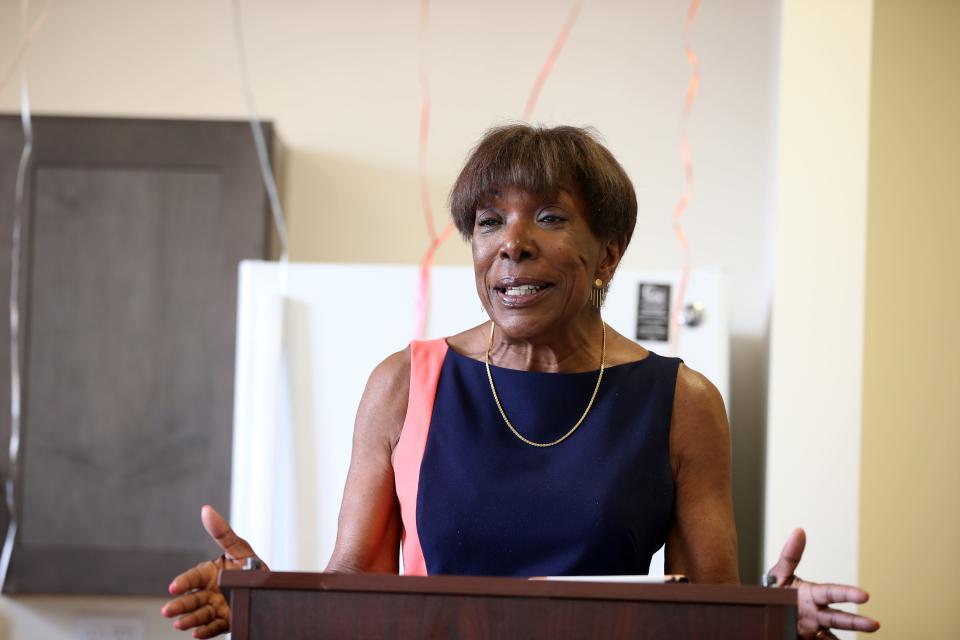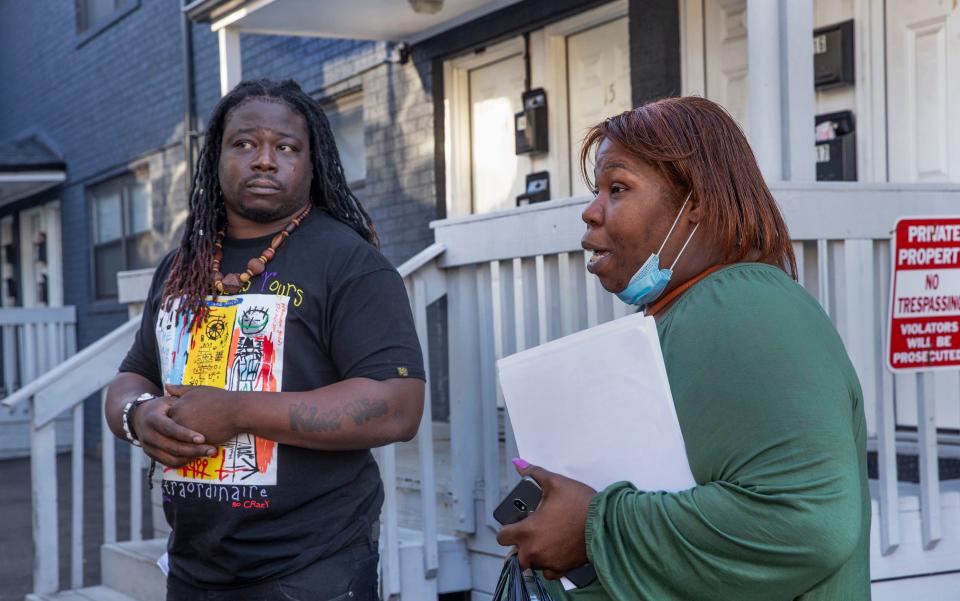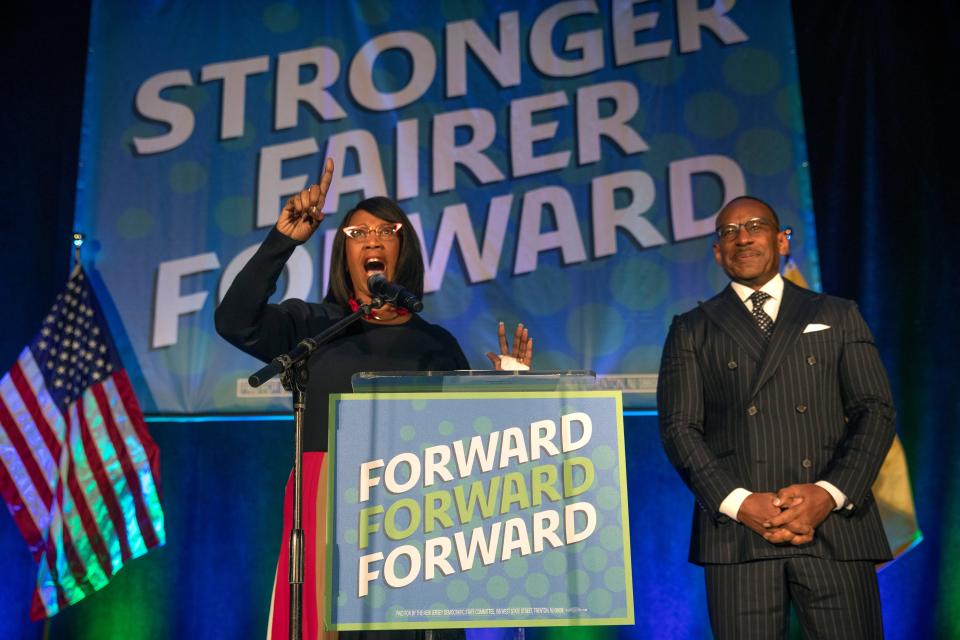NJ bracing for Supreme Court decision: 'When Roe v. Wade goes away, we all lose'
ASBURY PARK - Asbury Park Councilwoman Yvonne Clayton is worried about what comes next.
"I just think that when Roe v. Wade goes away we all lose," said Clayton. "It breaks my heart."
Like many people around the country, Clayton was disappointed to learn, in a story first written by POLITICO, that the U.S. Supreme Court is poised to overturn the 1973 landmark Roe v. Wade decision, which guaranteed the right to an abortion. A decision could be issued this month.
Clayton grew up before Roe v. Wade was decided and remembers all too well what life was like.
"I've seen a good friend in college, who had to resort a backroom abortion, almost die. As result of that, she was never able to have children when she wanted to," Clayton said.
She said she also believes that each woman, not elected officials or politicians, knows what's best for herself.

"I think that women, and their families, and their doctors are the ones that should be making these decisions," Clayton said.
More: NJ activists fear potential Supreme Court overturn of Roe v. Wade a sign of more to come
Clayton said she isn't advocating for abortions, but she is advocating for options, particularly for minority communities, including Black women, who would be disproportionately impacted.
According to the Kaiser Family Foundation, nationally 38% of women who had abortions in 2019 were Black, 33% white and 21% Hispanic. In New Jersey, 39% were Black women, while 27% were white and 18% were Hispanic.
"Those that are connected, those that are wealthy, those that know the right people are still going to have safe and available abortions. They are not going to go away. What will happen is those who don't, will risk their lives, children who have been abused, people who have been raped aren't going to have any options," Clayton said.
Clayton said politicians should instead be focused on serving their constituents by making better healthcare, affordable housing, child care, job training and education opportunities available to the people who need it.
More: Historic SCOTUS nomination 'a big step forward,' NJ students, lawyers say
In January, Gov. Phil Murphy signed legislation to protect the constitutional right to freedom of reproductive choice. That legislation codified reproductive rights into state law, including the right to access contraception and the right to terminate a pregnancy.
But, if Roe v. Wade is overturned, 26 states could swiftly move to ban abortion, including 13 states with laws that would immediately go into effect.
Those 13 states have "trigger laws," designed to instantly go into effect, and nine states have restrictive laws on the books that haven't been enforced since the Roe decision was handed down in 1973.
In New Jersey, and throughout the country, Black woman have mobilized around reproductive rights, in the likely event that Roe v. Wade is overturned.
Felicia Simmons, president of the Monmouth/Ocean County National Action Network, said this is not the time to politicize women's bodies.

"The world has changed and we should be working on protecting," she said. "The (Roe v. Wade) decision gave people a choice in life ... we get to choose for ourselves."
On May 11, Murphy announced plans to support additional legislation that would protect and expand coverage for reproductive health care, and protect medical providers and patients who provide or receive abortion care in New Jersey from legal retaliation by states that have outlawed or restricted abortion.
“Revoking the fundamental right to abortion is dangerous and reprehensible, yet the U.S. Supreme Court is nevertheless prepared to proceed with this plan,” Murphy said.
Lt. Gov. Sheila Oliver, who also serves as commissioner of the Department of Community Affairs, said "with women’s reproductive rights being chipped away in other parts of the country, here in New Jersey we are not only securing those rights, but we are making it easier for women to maintain control over their bodies."

Under newly proposed legislation, public entities would be prohibited from cooperating with interstate investigations into the provision or receipt of reproductive health care. The legislation also would establish a way to allow a person in New Jersey who is successfully sued in another state for their involvement in reproductive health care to file suit to recover damages resulting from that initial lawsuit.
Murphy also announced his intent to create a new Reproductive Health Access Fund to support access to reproductive health care for uninsured and underinsured women, clinical training grants to expand the number of health care providers with abortion training, and funding to help cover the costs of necessary security measures to protect at-risk health care sites.
More: Phil Murphy renews push for free abortions, other reproductive health access in NJ
Assemblywoman Angela McKnight said “bolstering access to reproductive care in New Jersey is a matter of equity," and “with women of color facing greater barriers to access, New Jersey must work to make it possible for every woman to receive the reproductive care they need."
Assemblywoman Britnee N. Timberlake added that she does not promote abortions, but she does "promote a woman's right to make decisions about her own body."
"My great aunt died during a back-alley abortion, ”Timberlake said. “Reversing Roe v. Wade is only going to result in our country's daughters risking hemorrhage, partially born babies, and sterilization just to keep her autonomy."
Timberlake is a co-sponsor of the New Jersey Reproductive Freedom Act.
Charles Daye is the metro reporter for Asbury Park and Neptune, with a focus on diversity, equity and inclusion. @CharlesDayeAPP Contact him: CDaye@gannettnj.com
This article originally appeared on Asbury Park Press: Roe v. Wade forthcoming Supreme Court decision worries Black NJ women

